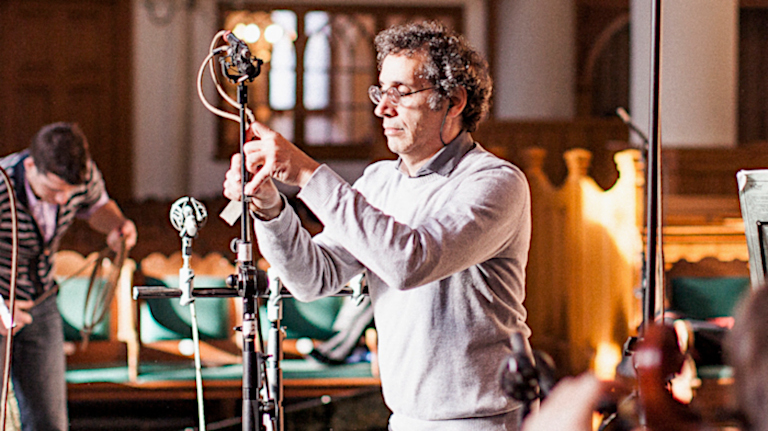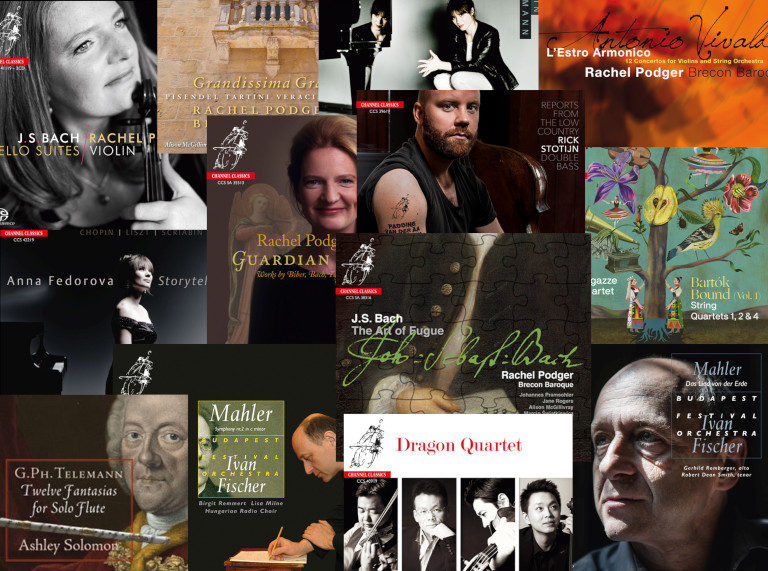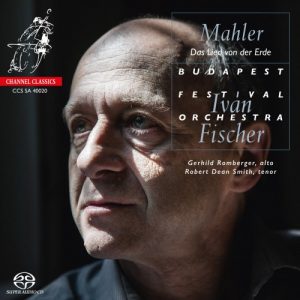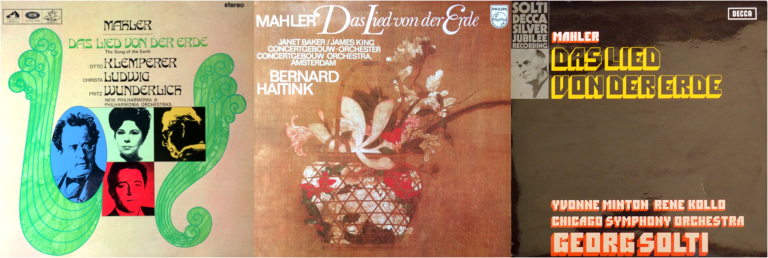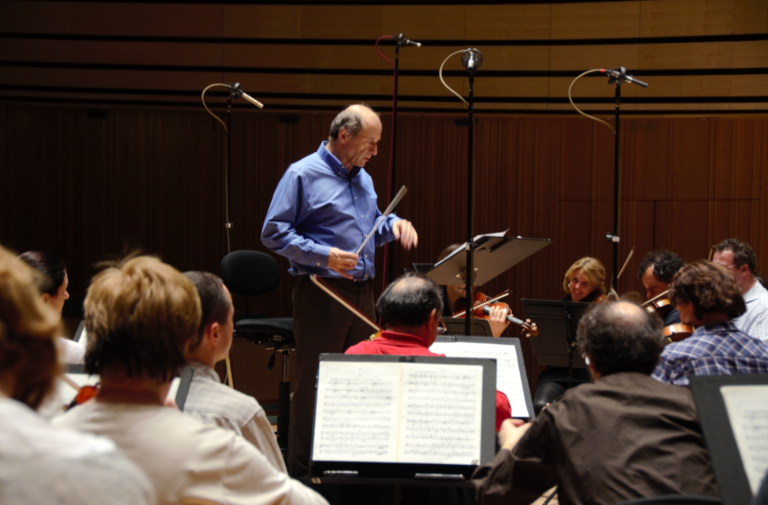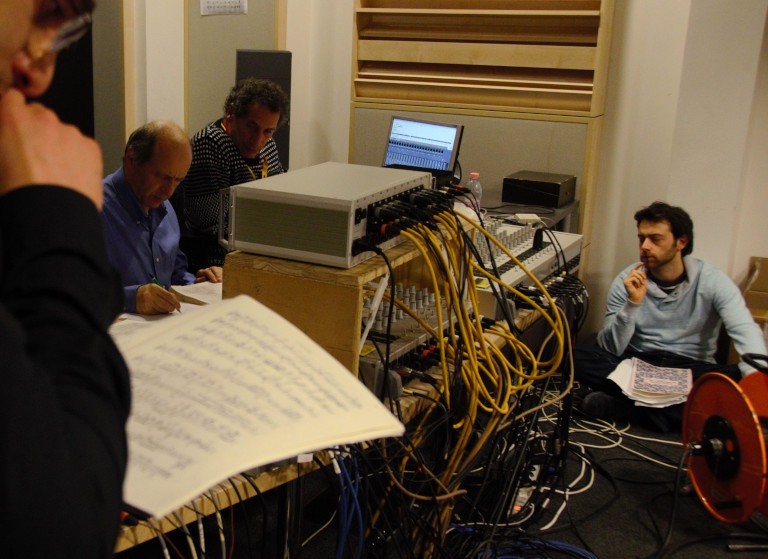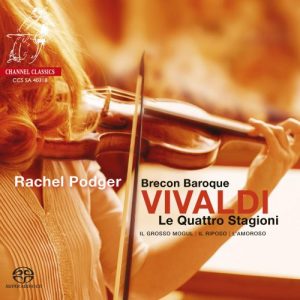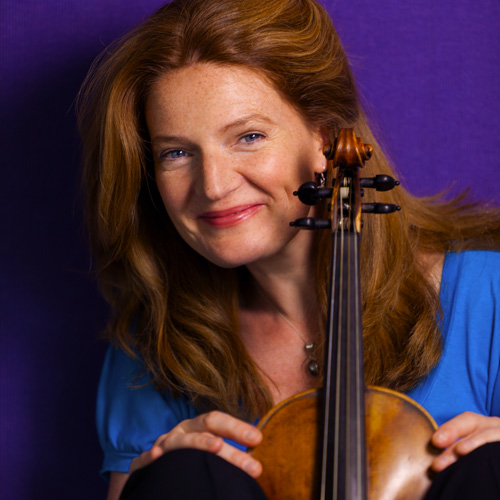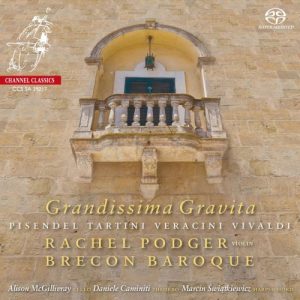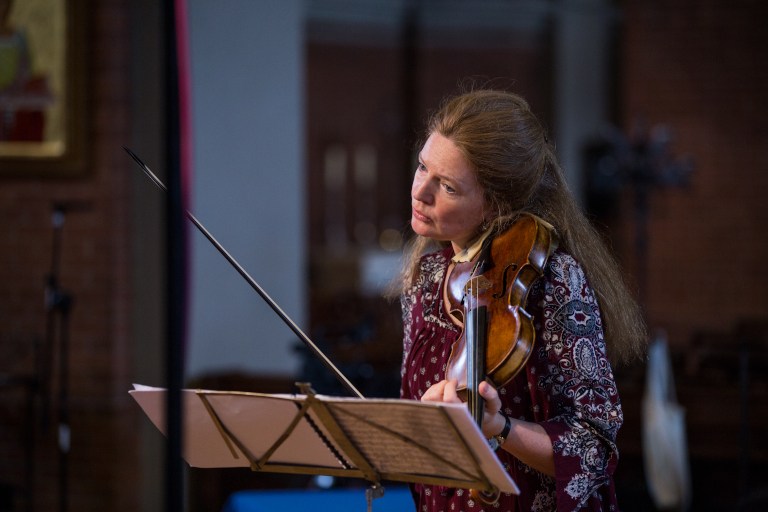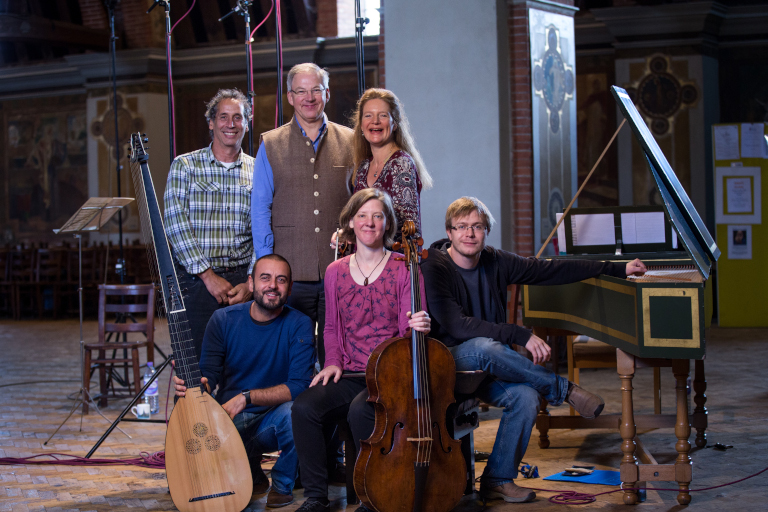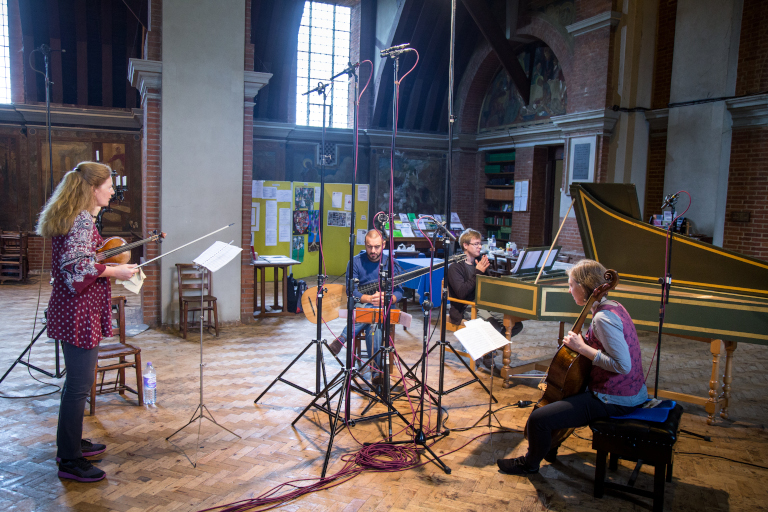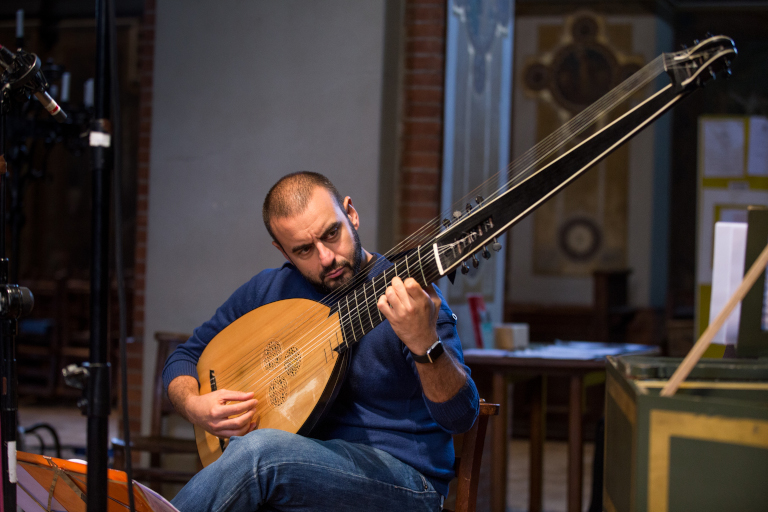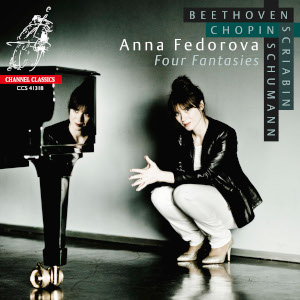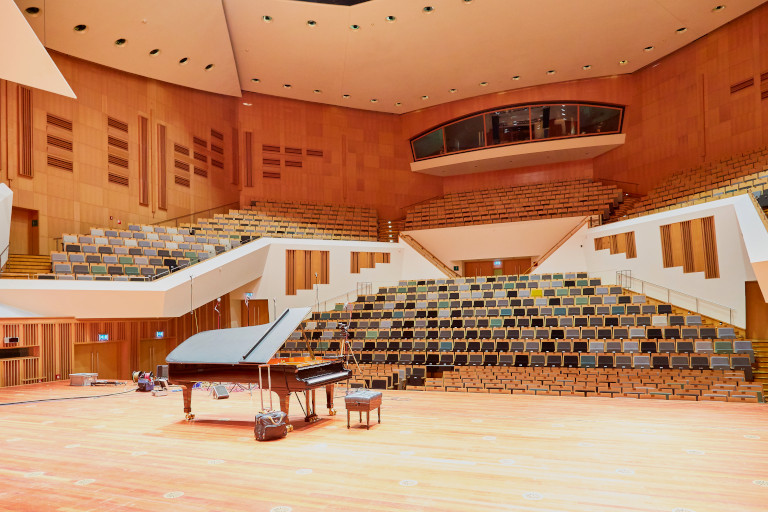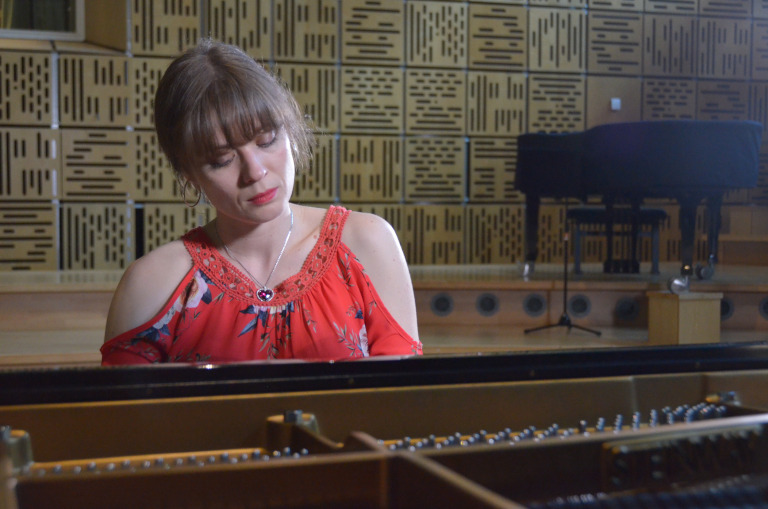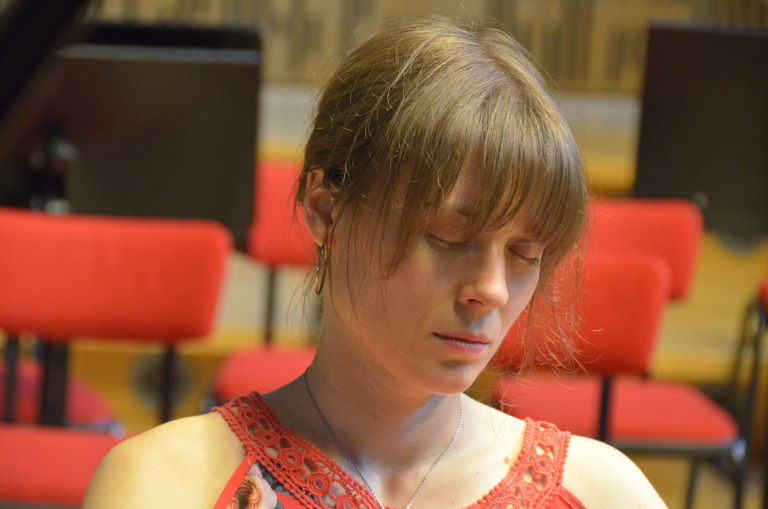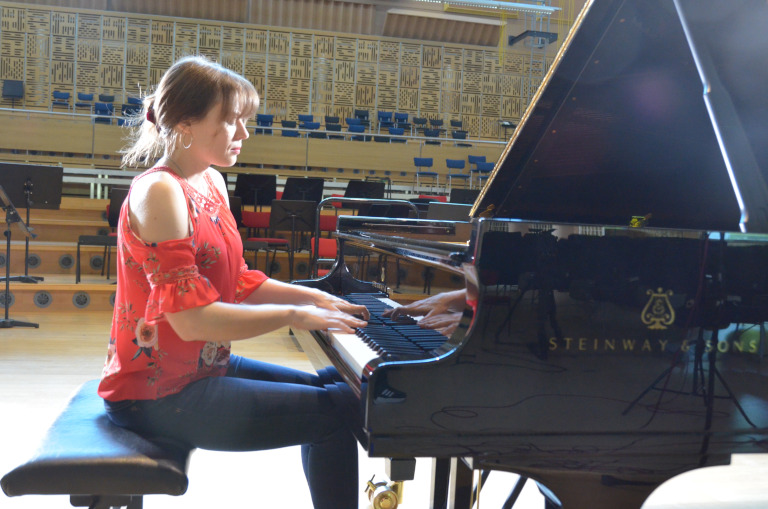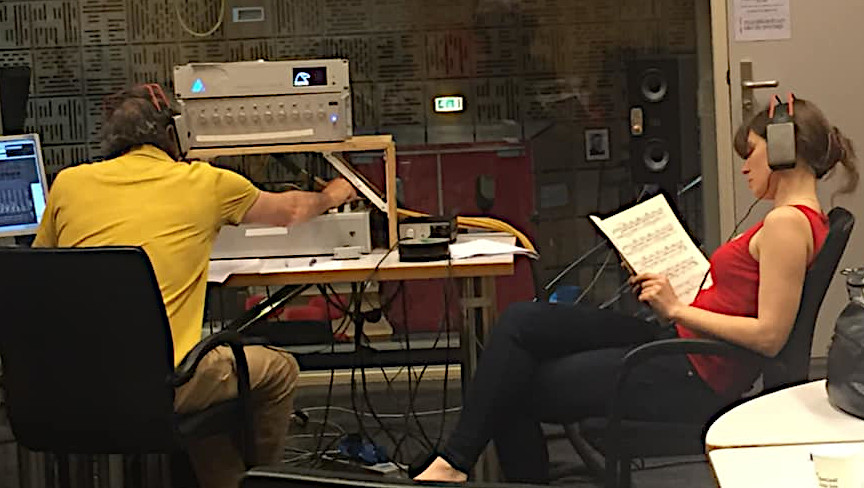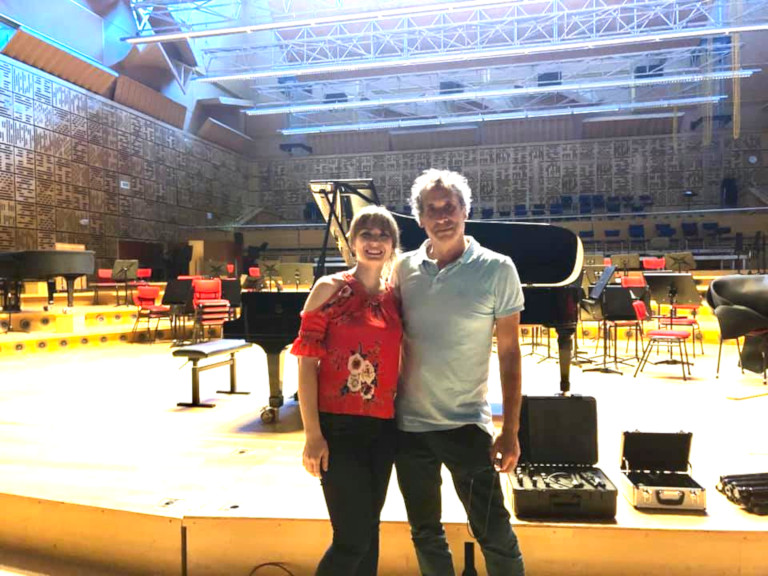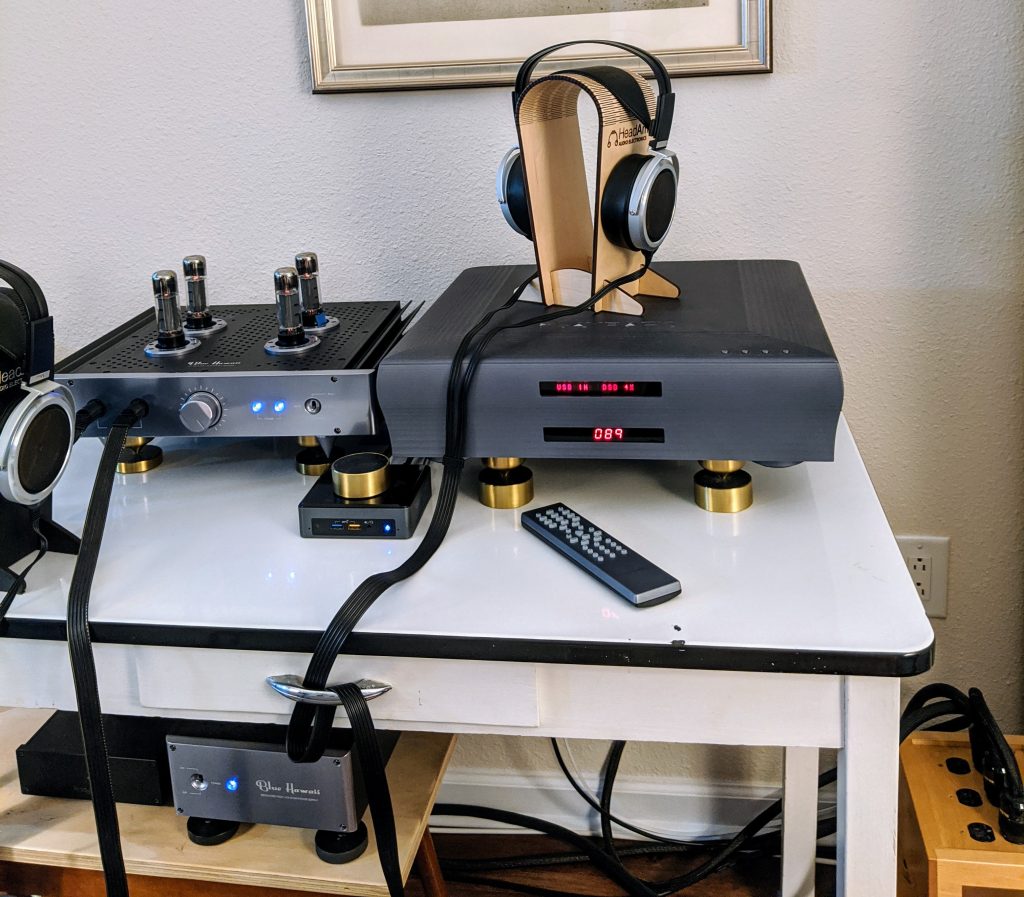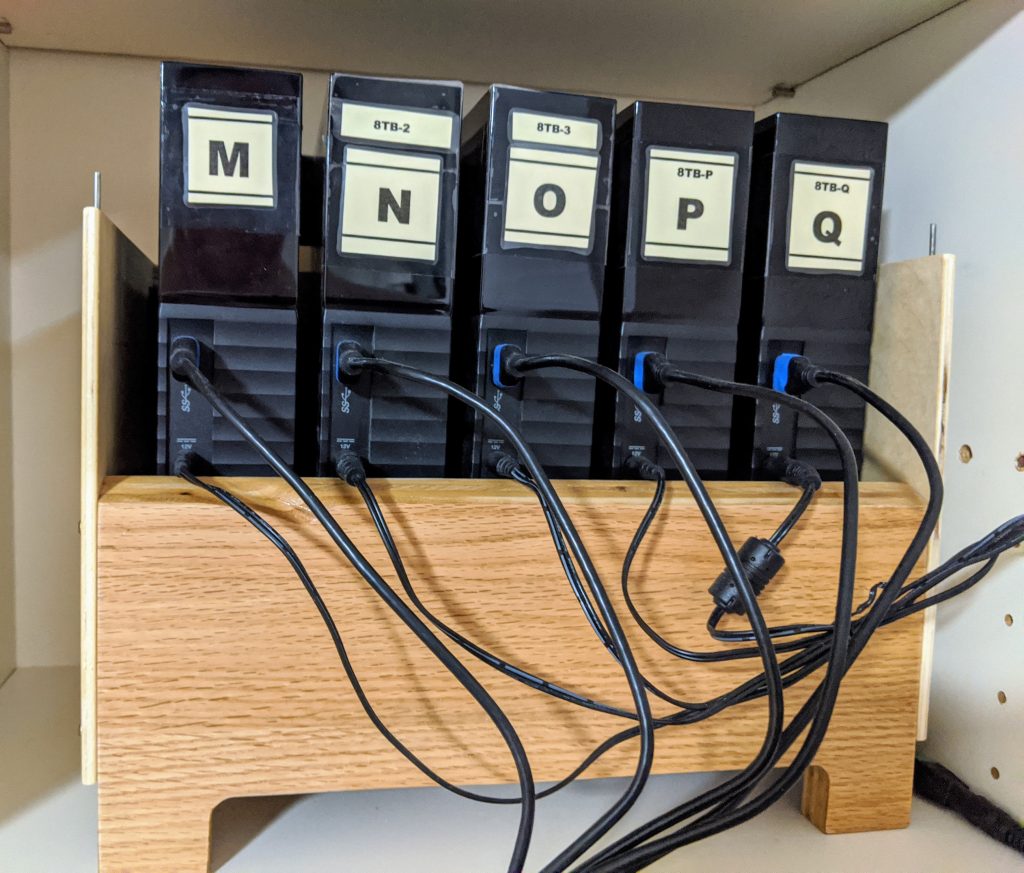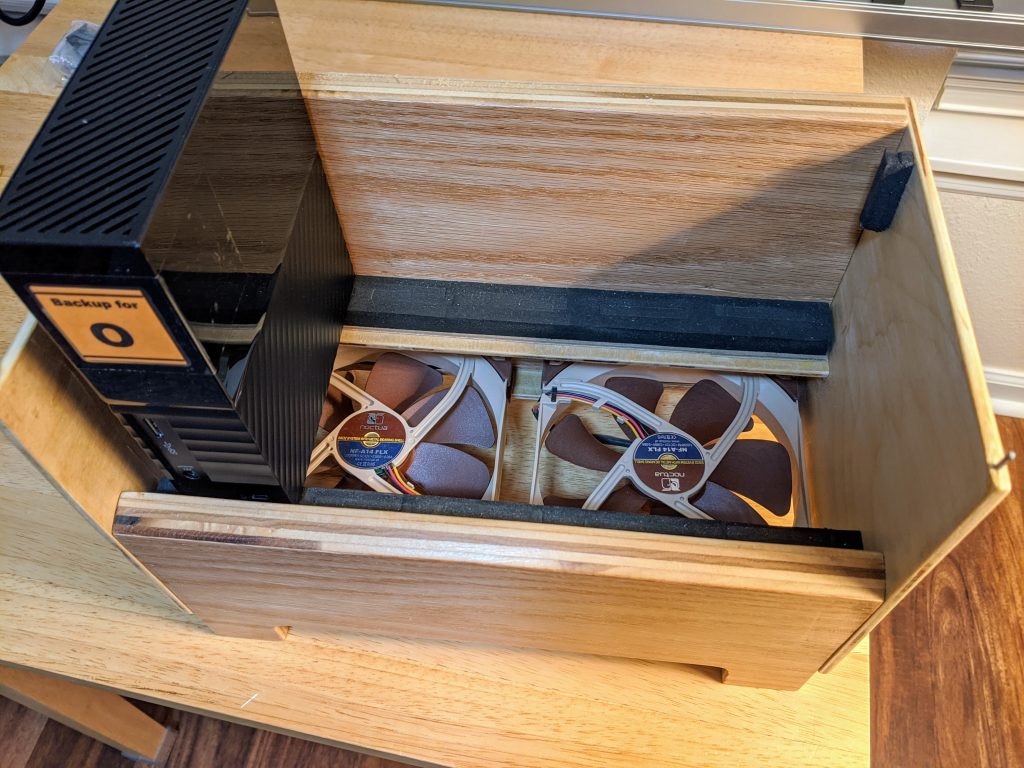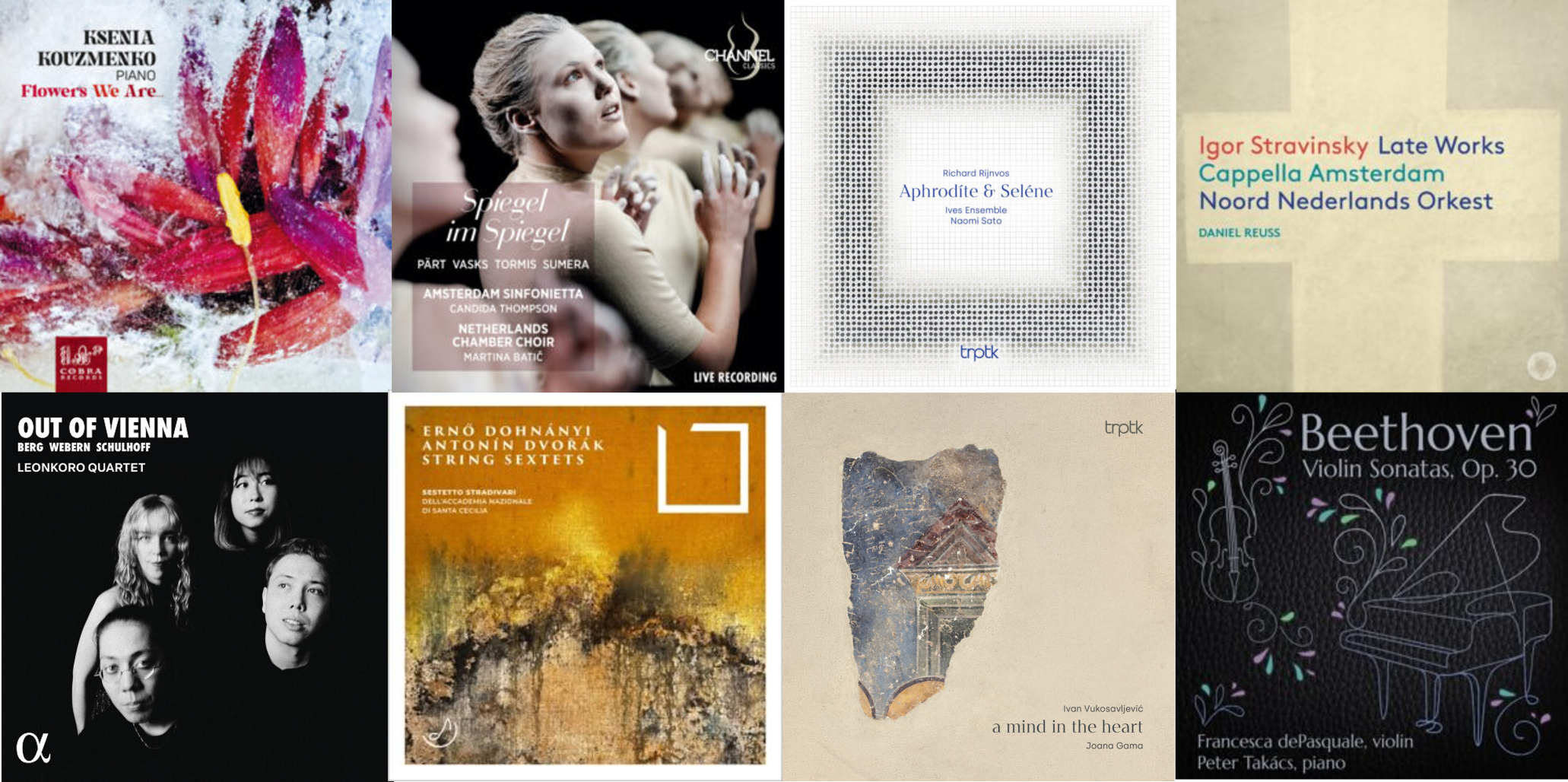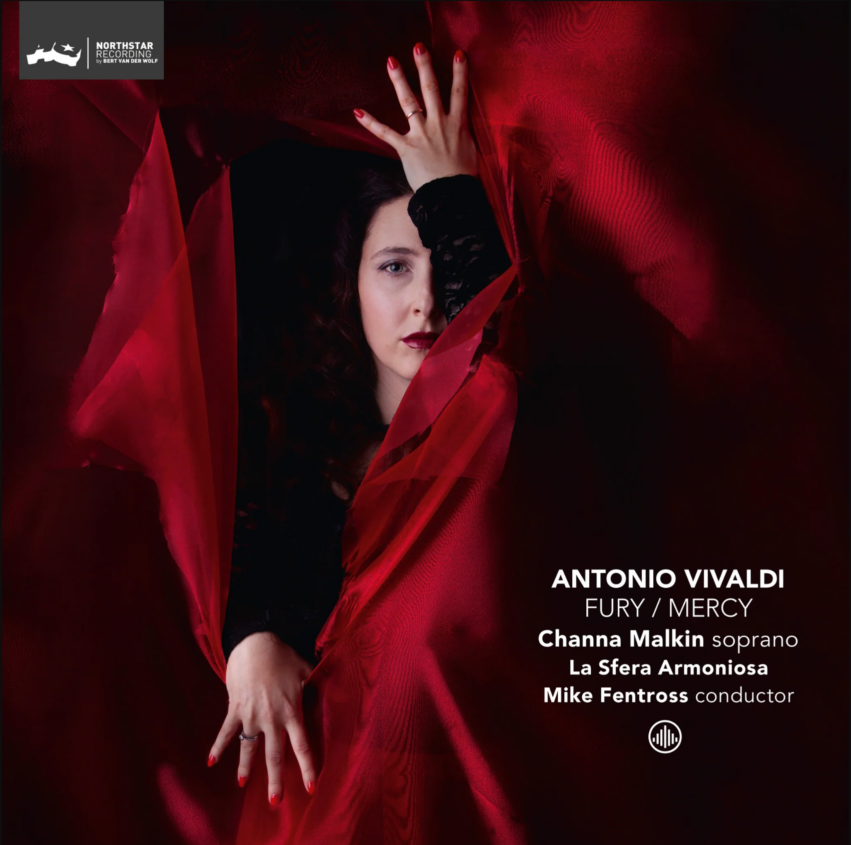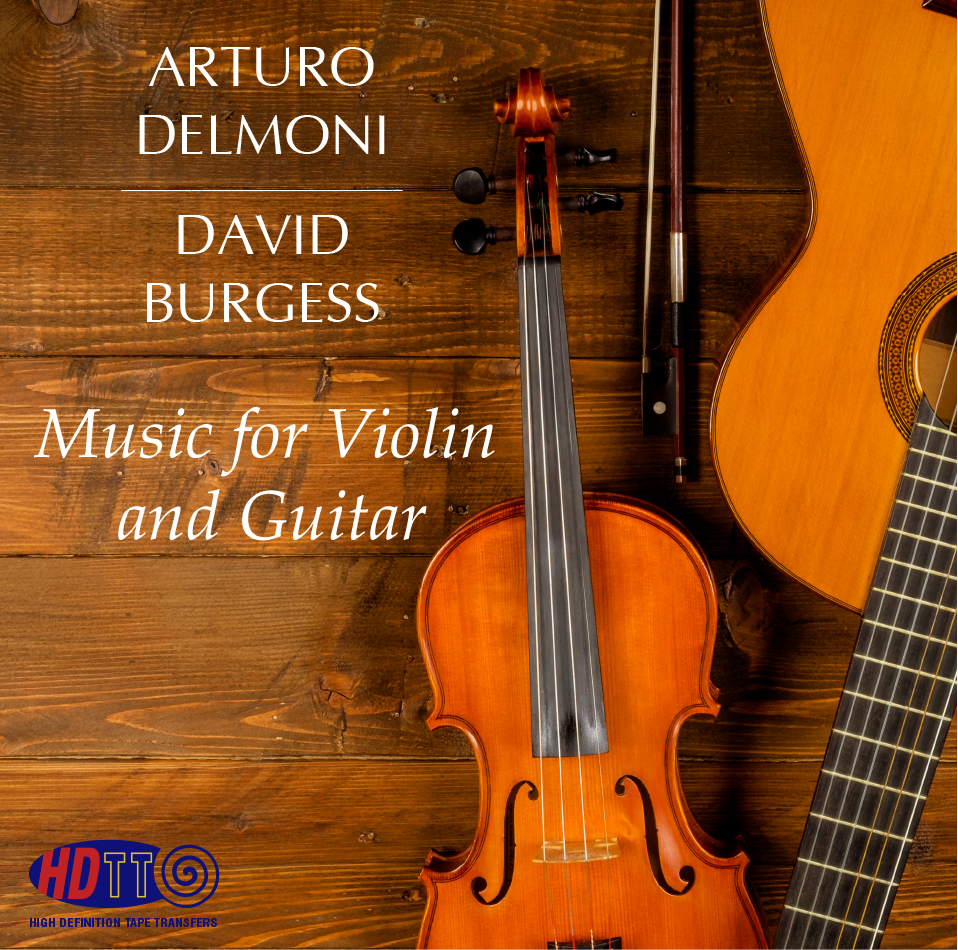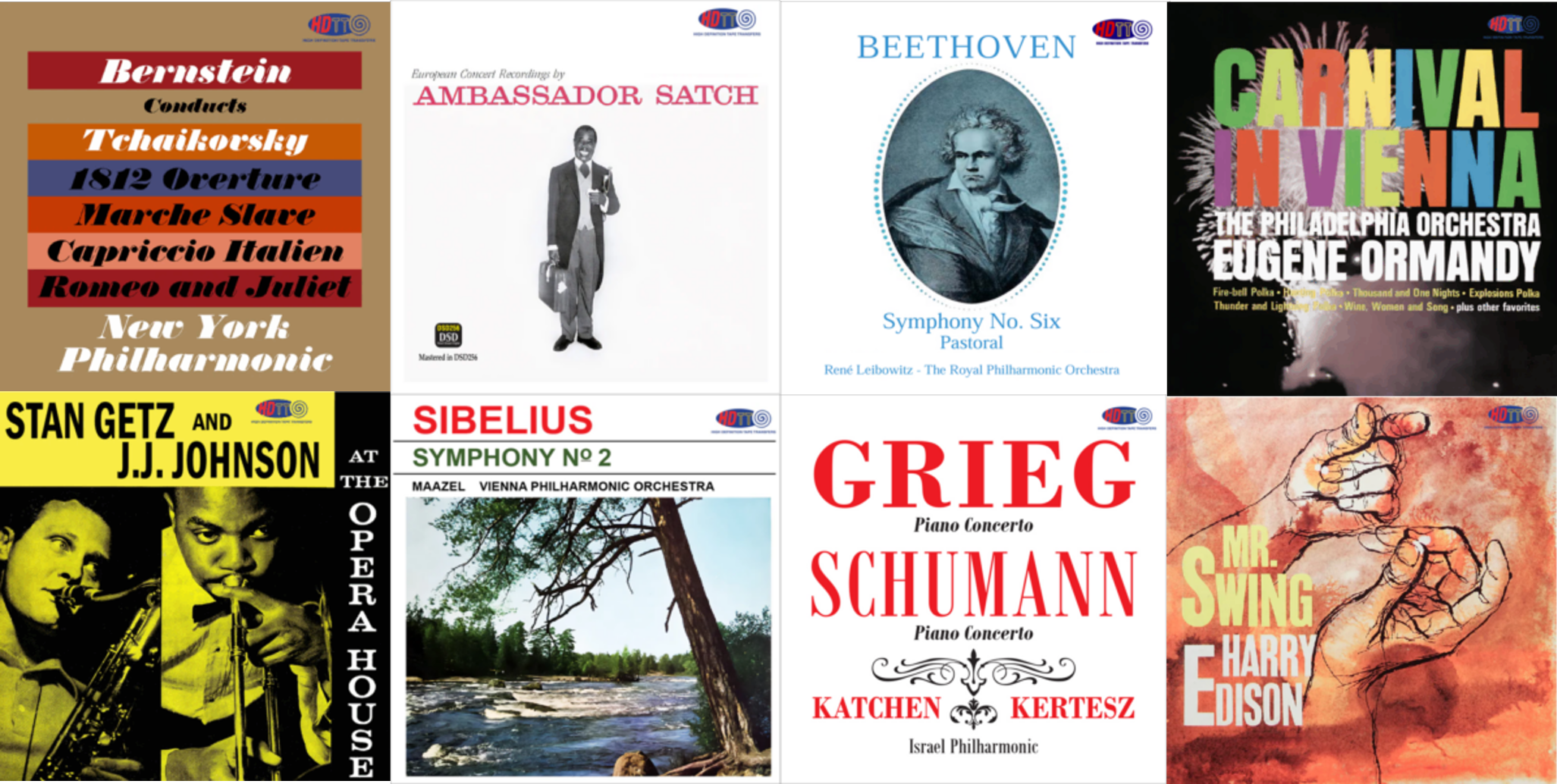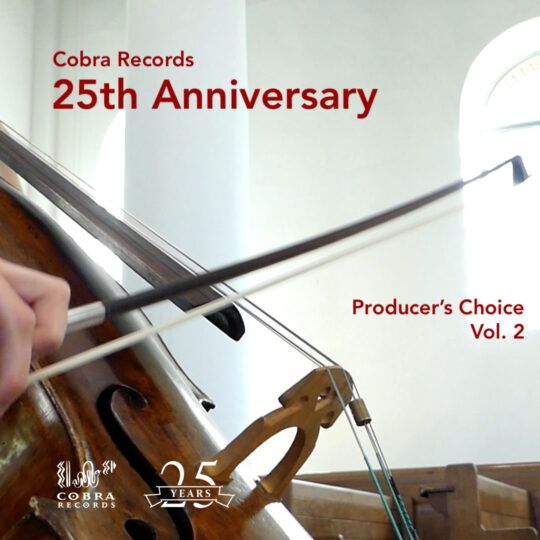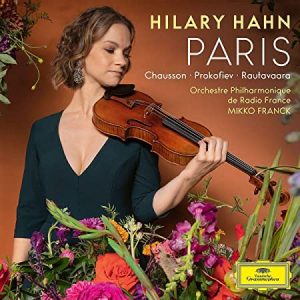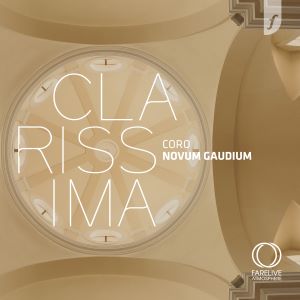The consistent excellence of Channel Classics' recordings has rapidly made this label our "go to" resource for modern recordings of both long-standing classical musical favorites and new areas for exploration. Jared Sacks, founder and chief recording engineer, is a recognized master of his craft and deservedly so. His recordings are transparent jewels that have become treasures in our digital music library. And the artists with whom he makes these recordings are outstanding.
As I was preparing for this article, I told Jared via an email that, until very recently, his vast catalog of remarkable recordings had been unknown to me. He replied, "What I don’t understand is that you actually listen to classical music and never have listened to Channel Classics… (what have I been doing wrong!)"
Indeed, Jared has only done things in a very right way—he and I have just lived in alternative universes for all this time. Until the past two years, I've been a dedicated vinylholic purchasing only vinyl. With the loss of my vinyl and my transition to digital, I've been rebuilding my music library with digital files.
Jared's recordings are becoming a mainstay of my classical music listening. Why?
Jared Sacks. Photo by Wouter Jansen, courtesy Channel Classics.
I've now listened to quite a few Jared Sack's recordings on Channel Classics and what I hear consistently are: transparency, exceptional resolution, rock solid imaging, consistent instrumental placement, excellent capture of the natural acoustic environment, and accurate instrumental timbre. There is a great purity to his recordings, a great sense of organic "rightness" in the sound he achieves, and a sense of overall integrity and fidelity to the original musical event.
Jared's recordings consistently transport me to the live performance with an easy-to-achieve suspension of disbelief. These are the rarely heard elements of recording excellence for me. It is only the best recordings that achieve these characteristics; and these are the characteristics I have always valued most highly in my audio listening.
In my past life collecting vinyl, I sought out recordings made by a number of recording engineers whose work I consistently found most appealing, like legendary Decca recording engineer Kenneth Wilkinson, Mercury Living Presence chief recording engineer C. Robert (Bob) Fine, independent recording engineer Marc Aubort, Harmonia Mundi recording engineer Jean-François Pontefract, legendary independent recording engineer Tony Faulkner, to name just a few. These have been the engineers whose recordings made my aural senses tingle with enthusiasm. I've now added the name of Jared Sacks to this list of my audio heroes, and I will eagerly seek out his recordings.
Some illustrative album covers from Channel Classics, recorded by Jared Sacks.
Some of you may recall my earlier article in which I shared my enthusiasm for the recordings from jazz label Just Listen Records. Those recordings are also made by Jared and they share the same exceptional qualities (thus my enthusiasm for them). But recording the larger numbers of performers gracing these classical music orchestral performances, such as Mahler's Das Lied von der Erde (discussed below) is an altogether greater challenge. One that Jared accomplishes brilliantly.
But brilliant recording would be for naught without exceptional artists and performances. And I've been exceptionally pleased to find so many exceptionally talented artists in the Channel Classics musical family, both established and emerging. Artists such as Iván Fischer and the Budapest Festival Orchestra (which has become one of the world's best orchestras under Fischer's careful culturing, per the BBC and Grammophone), Rachel Podger and her ensemble Brecon Baroque, Anna Fedorova, Ashley Solomon, Florilegium (early music ensemble), The Netherlands Bach Society, Amsterdam Sinfonietta, Rosanne Philippens, Ning Feng, and Ragazze Quartet are just a few of their regularly appearing artists.
So, please let me introduce you to five outstanding Channel Classic recordings with three marvelous artists. I believe you will find these excellent starting points for exploring the many recordings from Jared Sacks and Channel Classics.
- Mahler: Das Lied von der Erde - Iván Fischer and Budapest Festival Orchestra
- Vivaldi: Le Quattro Stagioni - Rachel Podger and Brecon Baroque
- Grandissima Gravita - Rachel Podger and Brecon Baroque Members
- Anna Fedorova: Four Fantasies for Piano
- Anna Fedorova: Storyteller - Chopin, Liszt, Scriabin
Mahler: Das Lied von der Erde, Iván Fischer, Budapest Festival Orchestra, Gerhild Romberger, alto, Robert Dean Smith, tenor - Channel Classics. [DXD, DSD256] (HERE)
Buckle your seat belts, hold onto your hats. You know I don't spend time writing about a recording unless I like it, and I really, really like this recording and performance!
Like many of us, there are certain artists on whom I imprinted years ago. For me, in this music of Mahler, it was Janet Baker. Among the many historical performances, Bernard Haitink and Janet Baker created my standard of reference for Das Lied von der Erde (Philips 6500 831, 1975). Yes, Christa Ludwig with Klemperer (EMI SAN 167, 1967) and Yvonne Minton with Georg Solti (Decca SET 555, 1972) are all perfectly wonderful. But Dame Janet has always held my heart, whether in Handel or Purcell or Britten or Berlioz or Mahler (as here), Janet Baker reigns supreme for me.
So, it was with some trepidation that I approached this modern recording with Gerhild Romberger and Iván Fischer.
And I am smitten by her performance here. It's simply wonderful.
Assured, confident, with long pure lines, beautiful tone, and deep emotional rendering, Gerhild Romberger delivers a superlative performance. Different, yes. Perhaps unique. But exquisite and emotionally involving. As Brian Wilson writes in MusicWeb, "You need only listen to her singing of the extended Ewig (eternally) at the end of the work to fall in love with her singing. I had to listen again to the whole of that movement, Der Abschied, straight away. Everything is just right here—conductor, orchestra, recording and soloist all as one. Perhaps the diction might have been a little clearer, but I’m not complaining when the singing is so beautiful…Gerhild Romberger’s voice may not quite have that combination of beauty and wistfulness that marks Janet Baker’s, but I could happily take her contribution to the new recording to my Desert Island."
Yes, me too.
And as much as I am bewitched by Gerhild Romberger, I cannot forget to mention the contribution of the American operatic tenor Robert Dean Smith. Smith sings with a full, resonant tenor voice that I find compelling in this music. (As I understand, Smith began his career as a baritone. Perhaps this is why I like his voice.) Mahler is not kind to his tenors, the music scoring is incredibly hard on the voice. But Smith delivers assured confident singing throughout this recording.
And it is this perfect combination of conductor, orchestra, recording and soloists that makes this a Das Lied to treasure.
Iván Fischer delivers masterful control, pacing, dynamics, and support for both the orchestra and his soloists.* He is the perfect collaborator—never overshadowing the vocalists, never competing, always complementing. And, Fischer does something that is difficult in Mahler, he maintains a view of the entire arc of the music over a full hour and across six movements. Too many conductors lose sight of the larger story of Mahler's music delivering smatterings in chunks of sound. Fischer delivers an integrated whole.
And the orchestra certainly delivers for Fischer with precision, passion, and a muscular control that verges on the ferocious at times. But, also with a delicacy when called for that is a pure musical delight for the ethereal sound achieved.
Iván Fischer and the Budapest Festival Orchestra in recording session of Mahler's Symphony No. 9 for Channel Classics, Palace of Arts, Budapest.
One more critical element about this recording remains: the sound quality.
This recording, my friends, illustrates precisely why I've become such a great fan of Jared Sack's skills as a recording engineer. The sound here is open and transparent, clearly exposing to our ears the sound of the individual instruments while maintaining a coherent whole.
The natural ambiance of the Palace of Arts, Budapest, is captured well, adding air, deep resonance, and a thunderous bottom end to the recording. The recording reflects the natural warmth of a great, somewhat reverberant, performing hall. At the same time, instrumental lines and vocalists are heard clearly, distinctly, and, most importantly, in their natural relation one to the other. There is no unnatural microphone spotlighting to capture greater detail yet all is laid out to the ear.
Another aspect of this recording that I find most attractive is that is sounds LIVE. It sounds as though a single coherent performance was recorded, without interruption, without overdubs, without piecing it together from a bucketful of shorter takes. Each movement sounds as if it was recorded in one continuous take. I love that. I love it because so many times piecing something together out of short takes to get "just the perfect" sound sucks the life right out of the performance. Not here. It breathes naturally, it is alive.
Iván Fischer and Jared Sacks (center back) in the control room for the recording session of Mahler's Symphony No. 9 for Channel Classics, Palace of Arts, Budapest.
There are a multitude of Das Lied von der Erde recordings available, from historical to modern. I certainly have not heard them all, not even a good fraction. But, of the recordings I do know, this recording by Jared Sacks with Iván Fischer and the Budapest Festival Orchestra rises right to the top. It's a more transparent, more resolving recording, with greater bottom-end impact, than any of the others I know. Yes, you hear the tam tam!
Highly recommended.
*For those interested in some greater insight into this music by Mahler, I recommend the YouTube video with Iván Fischer in which he shares some background on Mahler's creation of this work and explains various elements heard in the music. I found it well worth 30 minutes of my evening.
Vivaldi: Le Quattro Stagioni (The Four Seasons), Rachel Podger and Brecon Baroque - Channel Classics. (2018 (DXD, DSD256) (HERE)
Okay, yes. Yet another Vivaldi Four Seasons. But this one is special because it features the superb Rachel Podger leading her ensemble, Brecon Baroque. And the sound quality could not be more pleasing to my ear. Moreover, the album additionally includes delightful, and idiomatic, performances of the rather quirky Il Riposo and the ever enjoyable Concerto L'Amoroso. If you don't know these last two works of Vivaldi, you owe it to yourself to become better acquainted.
I admit it. I've become a complete Rachel Podger fan. She is among a small group of Baroque violinists performing today whom I find outstandingly good. She can make the slightest bit of music utterly engaging and enchanting. I find her impact somewhat difficult to describe, but she clearly delivers a unique experience with her performances. There is a subtle wit and gentle humor about her playing that is always present, coupled with a deep musical intelligence. She is never simply sawing away on top of the music. No, her playing flows and infuses the work with interest, perspective, a new view of what it's all about.
As Lindsay Kemp reported when Grammophone named Rachel Podger Artist of the Year in their 2018 Classic Music Awards:
"To watch Rachel Podger direct Brecon Baroque at the York Early Music Festival this summer, as I did, was to see an artist so alert, alive and joyous in her music-making, and yet so relaxed and modestly self-confident, that it almost didn’t matter what the music was. Here was someone totally at ease with her own artistic personality, uninhibited in communicating it with phrase and gesture, and seemingly still deeply in love with the act of playing the violin, especially with friends. The audience adored her for it.
"…That music in York, by the way, was Vivaldi's Four Seasons, presented with an effortless freshness and delight in detail that also drives this recording ('self-recommending', according to our own Editor)..."
I keep adding more of her performances to my library and deepen my appreciation for what she accomplishes with every new recording I hear. From Bach to Mozart to Vivaldi…, yes, you can be sure to read more from me about her recordings in future articles.
Podger's ensemble, Brecon Baroque, does not let her down. These are world-class period instrument performers who are very accomplished in music of the Baroque and classical periods.
So what makes this performance of The Four Seasons stand out for me? Verve, vitality, wit, panache, coupled with precise ensemble playing and virtuosic individual performances. The entire performance is a joy ride—nothing dull or plodding here. But it's also not simply a mad dash to play sections as fast as it may be possible for fingers to fly, not at all. This is where that musical intelligence and subtle wit come to the fore. The music dances, it burbles, it flows, it winks at you.
Yes, I am quite taken by this performance and recommend it most highly. It is a Four Seasons you really do need to add to your collection.
But if I can't convince you, and the thought of yet another recording of The Four Seasons fails to entice regardless of its wondrous merit, consider the most enjoyable couplings of Vivaldi's Il Riposo and Concerto L'Amoroso. They are worth the investment in this album all to themselves.
Grandissima Gravita, Rachel Podger and members of Brecon Baroque - Channel Classics. (2017 (DXD, DSD256) (HERE)
Imagine if contemporary composers Antonio Vivaldi (1678-1741), Giuseppe Tartini (1692-1770), Francesco Maria Veracini (1690-1768), and Johann Georg Pisendel (1687-1755) were together for an evening of shared chamber music. This is what we have in this recording: a composition each from four of the outstanding composers of the Baroque performed by four of the outstanding period instrument performers of today.
The recording is transparent, dynamic, and richly detailed, opening a window onto some intriguing, entertaining, and richly rewarding music that is supremely well performed.
Led by the inimitable Rachel Podger, whom The Sunday Times once called "the Queen of the Baroque violin," these are performances of great style, elegance, and serene competence. Podger's three fellow performers are members of Brecon Baroque: Alison McGillivray, cello; Daniele Caminiti, theorbo & guitar; and Marcin Świątkiewicz, harpsichord. Each as imaginative and delightful in their contributions as is Podger herself.
Recording session at St Jude’s-on-the Hill, Hampstead, London, UK.
Bottom photo: Rachel Podger, Alison McGillivray, Daniele Caminiti, and Marcin Świątkiewicz; accompanied by producer Jonathan Freeman-Attwood (top middle) and recording engineer Jared Sacks (top left). Photos by Jonas Sacks.
The performers play with infectious joy, easily passing phrase from one to the other, seemingly reading each other's thoughts as their music making breathes as one. As BBC Music Magazine describes, "… ultimately the disc's compulsive spell is down to the triumph of ensemble chemistry. Even the humblest of cello lines is elevated beyond functionality into something expressive and integral to the overall effect. Bewitching."
The recording by Jared Sacks is another treasure. Clearly much smaller in scale than the Das Lied or Four Seasons referenced above, this recording is an appropriately more intimate affair. Vivid, full, and colorful life is given to each of the instruments, and to the ensemble as a whole, in this intimate natural acoustic setting.
Recording session. Photo by Jonas Sacks.
Take as an example the subtle musicianship found in the opening movement of Veracini's Sonata Number 12 for Violin and continuo in D minor, the Passagalo. We first hear Rachel Podger violin, then subtly doubled by Alison McGillivray's cello. A bit later Daniele Caminiti joins at about 1:30 with softly strummed theorbo. And finally, Marcin Świątkiewicz joins on harpsichord.
Recording session. Photo by Jonas Sacks.
The distinctive timbre of each of the stringed instruments is fully captured with all of their delicate harmonic overtones. The varying lines taken by each are heard distinctly as the weave and complement one another. This is beautifully played. And the Jared's recording skills present all of this with marvelous clarity and a rich beauty, allowing the timbre of each instrument to be clearly resolved. Excellent work!
I just love it. I hope you will, too.
Anna Fedorova: Four Fantasies for Piano, Channel Classics. (2018 (DXD, DSD256) HERE
Subtle, graceful, nuanced—these were the first adjectives the popped into my mind as I listening to the opening of Anna Fedorava's gorgeous performance of the Scriabin Sonatano with which this album begins. Then, as the music progressed: well judged dynamic contrasts, excellent shifts in tempo, delicacy coupled with power. Oh yes, I like her playing.
And so my positive thoughts continued as I listened to her playing for the first time. Fedorova has a beautifully delicate touch that transitions to impactful power in an instant as called for by her vision of the music. This is "steel fist in velvet glove" control, power, and musical intelligence being applied.
Anna Fedorova has thoroughly charmed me. I've thought about other pianists whom I've greatly admired over the years, and Ivan Moravec returned most frequently to mind as a point of comparison to share. If you know Moravec's performances, you will find in Fedorova a similar fierce intelligence holding the music tightly in control, playing alternately with the greatest delicacy and nuance, then flowing forth in a storm of power and intensity as the emotional contrasts in the music are best served.
This is no more aptly demonstrated than in her performance of the Chopin Fantasie in F minor. Delicacy and storm, then quiet reflection, with a final emphatic punctuation. Simply a brilliant performance, with subtle inflection emphasized over declamatory punctuation. And, yes, I've heard recordings of this work by multiple different pianists, and they all approach the work differently. This is a performance to which I shall return and it makes a very nice complement to the library here.
On this album we have performances of the following four fantasies:
Alexander Scriabin, Sonatano
Frédéric Chopin, Fantasie in F minor, op. 49
Robert Schumann, Fantasie in C Major, op. 17
Ludwig Van Beethoven, Sonata quasi una Fantasia no. 14 (Piano Sonata No. 14 "Moonlight")
Anna Fedorova writes in the liner notes:
"We all have fantasies which we love to dive into. On this CD, I will be diving into the fantasy worlds of several of the most celebrated composers. In music, the 'fantasie' is one of the freest genres and each composer explores it in his own way. For this CD I have chosen some of my favourites.
"The recording opens and closes with two fantasy-sonatas ('Sonata quasi una Fantasia'). In it there is a beautiful symmetry, as well as a common 'moonlight' theme. In Beethoven's case the name 'Moonlight' was given to his Sonata No. 14, op. 27 no. 2, posthumously by the German music critic and poet Ludwig Rellstab (and although Beethoven had no such intention for this, the name really stuck to it). As for Scriabin's sonata it's quite a different story. We know from his notes that he worked on the piece during his honeymoon in Crimea and that he took his inspiration from a beautiful quiet night while sitting and admiring the sea view in the light of a full moon.
"Of the two other fantasies on this CD, the Fantasy, op. 49, by Chopin, a piece which has been so long in my repertoire, is a most profound, powerful, and dramatic work. There is a deeply intense and powerful struggle for survival throughout the piece, starting with a marche funebre at the beginning, followed by a pure chorale-prayer in the middle and, to close, a heavenly recitative of the soul.
"The 'central' work on this recording is Schumann's Fantasy, op. 17, which I had been in love with long before I started playing it. Schumann wrote the first movement when he had fallen madly in love with Clara but couldn't be with her because of her father's objections. There is so much passion, tenderness, hope and frustration, agitation and calmness in this music. The second and third movements were composed somewhat later—the second being a celebration in a glorious and positive spirit, while the third travels to an extra dimension. It is simply the music of heaven.
"All together the four fantasies make a really beautiful and varied CD programme which I do hope everyone will enjoy!"
All of the performances here sound fresh, newly minted—even the Beethoven Moonlight, receives a rewardingly fresh, newly enlivened treatment. As Gary Lemco writes in Audiophile Audition: "Fedorova’s delivery of the arpeggiated, sequential chord literally shimmers with sensitive inflection, studied, thoughtful, and emotionally compelling, given the dreamy, improvisatory character of the first movement… (In the final movement) her fortissimi and sforzati project a potent, unapologetic energy. Liquid runs, a defined bass line, and seamless roulades define a most gratifying rendition of perhaps the most over-performed of all piano sonatas, but here in refreshed figures."
The whole of the album has a shimmering intensity. Fedorova grabs hold of one's attention and does not release—a tremendously engaging recital from start to finish. Do other pianists capture something different out of each of these works? Certainly, that is always the case. But Fedorova's is a fresh voice and she has much to say. I look forward to repeated listening to her treatments of these works, and I am delighted to now be introduced to her artistry.
Recording session, Big Hall, Muziekgebouw Eindhoven, The Netherlands.
And the other artist greatly complementing this album is producer and recording engineer Jared Sacks. The sound he captures from this performance in the Muziekgebouw Eindhoven is everything one may wish for. The lower range of this piano is reproduced with power, and the overall recording is full, resonant, and with great resolution of timbre. Additionally, the recording simply sounds alive and coming from an acoustically live and natural recording space.
Highly recommended for both performance and sound quality.
Anna Fedorova: Storyteller - Chopin, Liszt, Scriabin, Channel Classics (2019 (DXD, DSD256) (HERE)
With her second album on Channel Classics, released in 2019, Anna Fedorova returns with solo performances of Chopin and Scriabin, and now also with a work by Franz Liszt. And she continues to hold my rapt attention with her subtle, flexible, engaging style, and persuasive interpretations.
Alexander Scriabin, Two Poems and Sonata No. 4
Frédéric Chopin, Four Ballades
Franz Liszt, Three Petrarch Sonatas
And she proceeds to perform each ballade with great individuality and interpretive confidence. Sharing with the listener an intimate acquaintance with these ballades, she introduces an elegant re-working of pieces I thought I knew well. The difference perhaps lies in her flexible tempi and dynamic shadings, she is willing to stretch or diminish to make a point about her feelings for this music. And, in that, I come to hear these works differently than I've heard them before.
The Three Petrarch Sonatas are played like the intimate love sonnets Fedorova sees them to be. Writes Fedorova, "The Tre Sonetti del Petrarca (Three Sonnets of Petrarch) by Franz Liszt belong to the second year of his Années de Pèlerinage (years of pilgrimage): Italie. These three poetic pieces were lyrical, and some of the climaxes even remind me of Italian opera! In all three sonnets Petrarca writes of his love for his beloved Laura."
The closing two pieces on the album return to Scriabin as her first release began with Scriabin. And here are presented "a couple of poetic sketches reflecting two states of the soul: one blissful and meditative, the other of all-consuming ecstasy! Scriabin found his unique way of expressing blissful contemplation and unstoppable, explosive creative energy. These are the two poles of his creative nature. In his Sonata No. 4, Scriabin provided a poem in prose that he himself wrote, flying towards a wish, a star, as his object of desire. It opens with a very serene, poetic first movement, which proceeds into a mad dance, liberation and flight of exaltation that ends with an absolutely ecstatic and overwhelming coda!"
In this final Sonata No. 4, Fedorova carries us through Scriabin's emotional twists and turns with breathtaking facility. For the first movement over 3 minutes and 18 seconds, she carries us very quietly, very delicately, into this serene world. Then enters the second movement, 'Prestissimo volando,' building rapidly, intensely, into conflict with greater contrasts. Emotionally conflicted, volatile starts and stumbles, running away, running toward—but to what end is Scriabin taking us one wonders? With an undercurrent of impatience, groups of notes chasing each other, the music leaps towards a climax in the final minute where Fedorova brings all to a declarative and definitive halt. And her crisp touch makes all of this work with a clarity that is a joy to hear.
Once again the sound quality is excellent, reflecting what I have come to anticipate with any Jared Sacks recording. I couldn't be more happy in my enjoyment of the sound of this album as rendered by Jared's engineering skill, nor more musically satisfied by the marvelous performance Anna Fedorova has given us here. What a gift!
(Update: Ann finally listened to this recording early this morning on our primary system. When I got up, I was greeted with: "Oh, my god! What an incredible performance! Anna Fedorova is WONDERFUL! She plays with such a beautiful touch. I love the space she allows between the notes. Her interpretation of these pieces is just marvelous, the name Storyteller for this album is perfect. And the recording...! Oh, my. This is the best recording of a piano that I've ever heard. How does Jared accomplish this magic?!?" I would say she was very excited about this recording, wouldn't you?)
Recording session, MCO Studio 5, Hilversum, The Netherlands.
I sincerely encourage you to explore the Channel Classics catalog. In the recordings above you may find a good starting point based on your musical interests. If not, please take some time to explore their catalog of 250 albums recorded by Jared Sacks over the past 20 years.
All images courtesy of Channel Classics, with individual photo credits as noted.




